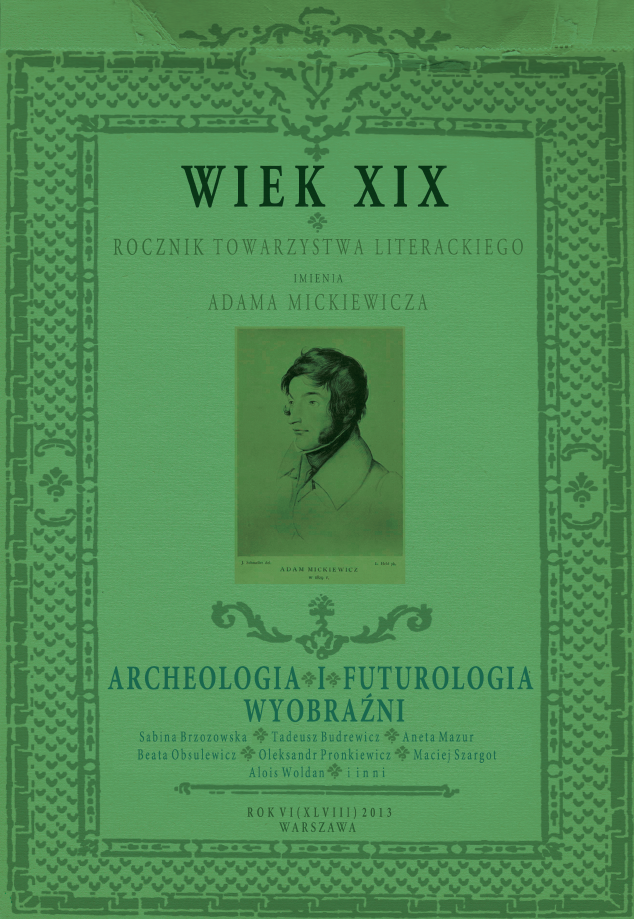Od archeologii wiedzy do futurologii informacji – „Faraon” Bolesława Prusa i „Wiedza tajemna w Egipcie” Juliana Ochorowicza
From the Archeology of Knowledge to the Futurology of Information. Bolesław Prus’s "Faraon"
Author(s): Beata Górska-SzkopSubject(s): Language and Literature Studies, Studies of Literature, Polish Literature
Published by: Towarzystwo Literackie im. Adama Mickiewicza
Keywords: Bolesław Prus; Julian Ochorowicz; John Galbraith; "Faraon", "Wiedza tajemna w Egipcie"; positivism; historical novel; science; technostructure; knowledge
Summary/Abstract: Positivism did not value historical themes. However, the positivists were fascinated by ancient Egypt. "Faraon" is Bolesław Prus’s only historical novel. Several years before it had been published, another positivist, the psychologist and inventor Julian Ochorowicz, held a series of public lectures in Lwów, which were collected in the volume "Arcane Knowledge in Egypt" a few years later. The comparison of those texts shows how two positivists used historical themes to make knowledge heroic and science immortal. The second part of my paper is focused on the futuristic aspect of Faraon. It transpires that in the 19th century novel, we can find a foretaste of John Galbraith’s technostructure.
Journal: Wiek XIX. Rocznik Towarzystwa Literackiego im. Adama Mickiewicza
- Issue Year: LXVIII/2013
- Issue No: 1
- Page Range: 131-162
- Page Count: 14
- Language: Polish

